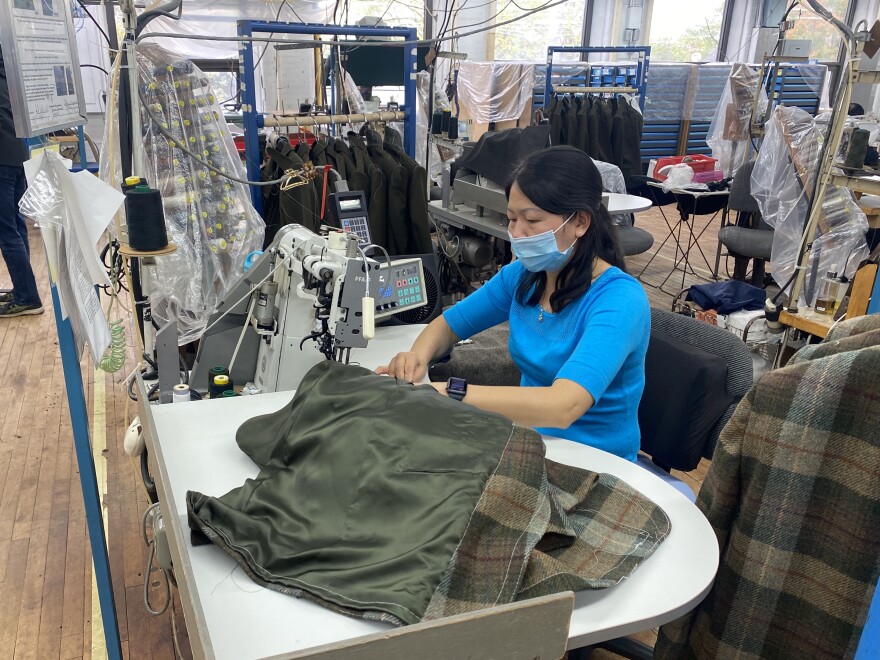Some 200 Hickey Freeman employees could lose health insurance coverage next week after the company neglected to pay the premiums.
They learned of the impending termination this week and complained to the National Labor Relations Board, alleging mishandling of paycheck deductions, and seeking immediate action.
“It's been a consistent problem for a few years now,” said Gary Bonadonna, a local labor leader with Workers United. “They hold on to the money or do whatever, it is they do with it. But it's not arriving at the right places.”
The union claims other deductions are similarly being held up, including union dues.
But the Rochester-based men’s clothier owes its insurance provider the most, more than $3 million in combined employer and employee contributions, according to the union. And the Amalgamated National Health Fund is getting out.

“It's not their money to play with,” Bonadonna said of Hickey Freeman. “It's directly from the workers' paychecks. They're just a conduit ... It's nothing to even be thought of that they would hold on to this money and use it for whatever purposes they want. It's like, it's, that's unfathomable.”
Hickey Freeman CEO Stephen Granovsky does not dispute the delinquencies. But he says it’s not a matter of pocketing paycheck withholdings. He alluded to partial payments being made, adding that employee contributions cover a fraction of the bill. Thus, he said, which dollars are paid or owed is unknowable.
The insurance debt piled up during the pandemic, Granovsky said, when sales were down 75%.
He declined to get into details of the company’s finances but said he “mishandled” the relationship with the insurance fund over the delinquency and needed to fix it. He said he was “blindsided” by the decision to terminate.
Both he and union officials said they are working feverishly to ensure employees coverage doesn’t lapse.
“I don't know how you operate a business or live like that,” Bonadonna said. “So, you know, we're concerned ... that speaks to larger financial issues.”
Granovsky insists the business outlook is positive. There are "two or three significant issues" — liabilities built up during the pandemic — that remain challenging, he said. But the company’s two major competitors folded during the pandemic. Now the problem is labor shortages, and being able to produce enough product to meet demand.

The company sold its North Clinton Avenue headquarters and production facility in June 2022. Home Leasing paid $4 million, city records show, allowing the company to settle a delinquent tax bill and other debts. The company is consolidating operations into one-third of the building and will continue operations. The developer plans to convert the remaining space into 134 affordable apartments for seniors.
Historically the relationship between Hickey Freeman and its union has been a good one. Officials could not recall a time when tensions reached this point.
“The workers, the members here, I mean, some people I’ve known my entire life,” Bonadonna said, speaking of Hickey Freeman as a family spanning generations. “It's an iconic company. Everyone roots for them. Elected officials do everything they can to support the company. We're so proud of the materials, the products they make, and all the hard work, you know, that the union members do.
“So to say it's upsetting is such an understatement.”



